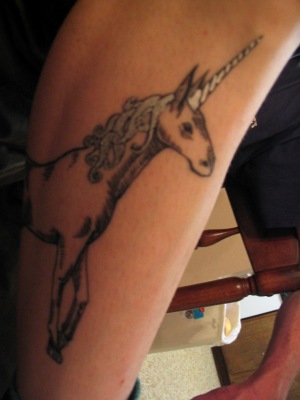I'm nearly done with
Michael Chabon's The Yiddish Policeman's Union, and it's great.
I read Kavalier and Clay a while ago, and it was good, but i didn't think it was great. The Yiddish Policeman's Union is great. Where K & C seemed to go astray and lose itself in filling the requirements of a pulp comic book, the YPU is much more focused, tighter, and the characters and story-telling benefit from it. I still have some complaints - for example i don't think it was necessary to have the protagonists own personal story turn out unexpectedly to be intimately tied up in the story of the antagonists: doing so sort of dilutes the .. pedigree of the hero's motives, imo, and is unnecessary.

Here's the overview:
the year is 2008.
the place is
Sitka, Alaska. The past is one in which we're not sure who won World War II, but we do know that the Jews were thoroughly rousted from Israel and were generally unwelcome the world over, including in the US, and in the late 40s Sitka was essentially turned into a giant Jewish ghetto. .. With the proviso that after 60 years, the chosen people would have to vacate Sitka and move on to places unnamed. So it's 2008, and the next rousting is due.
our hero is a hardboiled cop mourning his lost marriage and the upcoming eradication of a culture he both loves and derides. in good hardboiled cop tradition, he is now living in a flop house, and exploring mourning through the lens of cheap and strong booze. His partner is also his cousin, who is racially half Indian (American) and culturally 100% Jewish, and has a poor but flourishing family.
There's a murder, there's plots, there's backstabbing, there's surprises. There's lots and lots of Jewish words and Jewish this and Jewish that, which i love. I guess it's about one third [Jewish] political story, one third adventure story, and one third Jewish cultural portrait. It's a great mix, and Chabon's prose has only improved since K&C.
Other recent books:
The Crying of Lot 49 - reading this in half-page sprints while lounging on the can. That's the only way i can possibly swallow this stuff.
Words and Rules by
Steven Pinker - this is a whole book about irregular verbs. i love irregular verbs, and so does Steven Pinker. but i'm not going to finish the book because he loves them exactly as far as they promote the pedagogical agenda of his theory of cognition.
The Night People by
Jack FInney - this came up one day when
Vivianna and
Mike Plotz and i rode bikes over the golden gate bridge and down into Tiburon, a route which takes you through
Strawberry, which is the sleepy little town from which the hijinx of The Night People radiate. It's a great story. It's in a collection titled
3 by Finney, and seems to be the clear best of the lot.
I read
The Chronicles of Chrestomanci, by
Diana Jones. This calls for a picture.

.. Yeah. It was actually pretty fun, a temporary trip back to junior high.
